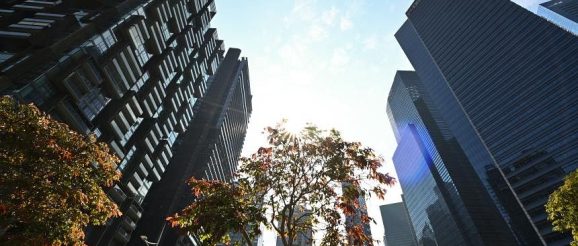Budget 2024: New tax credit to support firms’ innovation and green transition

Follow our live blog for more updates. SINGAPORE – Amid the global race to attract quality investments, Singapore will introduce a new tax credit scheme that aims to support high-value and substantive economic activities. The new refundable investment credit (RIC) scheme comes with a refundable cash feature. The RIC will be awarded by the Singapore Economic Development Board (EDB) and Enterprise Singapore (EnterpriseSG), and is based on the qualifying expenditures incurred by a firm. Expenditure categories that qualify include manpower costs, professional fees, materials and consumables, freight and logistics costs, and capital expenditure. Companies can get up to 50 per cent of support on each qualifying expenditure category. The amount of RIC a firm can get depends on its different qualifying expenditure categories. Each category has a predetermined support rate, which is tied to economic outcomes. Each RIC award will have a qualifying period of up to 10 years. The credits are to be offset against corporate income tax payable. Any unutilised credits will be refunded to the firm in cash within four years from when the firm satisfies the conditions for receiving the credits. Deputy Prime Minister Lawrence Wong, who is also Finance Minister, announced this on Feb 16 during his Budget speech. He noted that economic growth is tied to Singaporeans’ living standards, which are in turn linked to the Republic’s ability to attract high-quality and high-value investments that create good jobs for people here. He said: “To be clear, we are not going for growth at all costs. There is a limit to how fast we can grow due to tighter constraints we face in land, labour and carbon. “But by focusing on productivity and innovation, we can push the frontier and grow at an average of about 2 per cent to 3 per cent each year over the next decade.” The Government will also be topping up the National Productivity Fund by $2 billion this year. Besides new investments, Singapore needs to build on its competitive advantages, said Mr Wong. By enhancing capabilities and moving up the value chain, firms can then justify the higher premiums for operating out of Singapore, he said. An example is the semiconductors sector in which Singapore accounts for more than 10 per cent of the global market and 20 per cent of semiconductor equipment in the world, despite not being the cheapest location to have operations. Mr Wong also said Singapore has been able to distinguish itself as a stable and trusted financial centre, which is why there is a continued inflow of investments, capital and talent. To reinforce Singapore’s competitive lead, he said he will top up the Financial Sector Development Fund by $2 billion. This is to give the Monetary Authority of Singapore (MAS) more resources to extend the lead in the financial services sector. The funding is not to do more just in core areas of banking, capital markets, asset management and insurance, but also to grow new areas like fintech, as well as green and transition finance. More funds will be set aside for research and development, with the Government investing an additional $3 billion in the research, innovation and enterprise 2025 plan. The plan, launched in 2020 with a commitment of $25 billion, will keep investments in these areas at about 1 per cent of Singapore’s gross domestic product. The additional resources will go into research in national priorities like advanced manufacturing, sustainability, the digital economy and healthcare. Mr Wong noted that these investments will take time to translate into concrete economic outcomes but are needed to develop capabilities, ideas and talent. This will then sharpen Singapore’s edge as a knowledge-based and innovation-driven economy. S’pore to pump over $1bn into AI development, upgrade broadband network to 10Gbps Singapore will pour more than $1 billion into artificial intelligence (AI) development over the next five years, said DPM Wong. The fund aims to grow the AI talent pool and secure access to advanced chips that support the growing use of AI. Singapore’s broadband speeds will also be improved to hit 10 gigabits (Gbps) per second in the second half of the decade. Mr Wong said AI is key to driving further economic growth. He said: “Al is not just about ChatGPT or large language models, it is a general-purpose technology like electricity, the internal combustion engine, the computer or the Internet.” “It has the potential to transform a wide range of industries, and to enhance productivity across many existing processes, from drug discovery, to organising warehouses and driving vehicles.” To facilitate the growth of network-intensive AI and other technology, the Government will also upgrade Singapore’s nationwide broadband network to speeds of up to 10Gbps by 2030. “This is 10 times faster than the broadband speed in most homes today,” said Mr Wong. “This also ensures that our connectivity infrastructure will be able to support technologies like AI and immersive media as they become more pervasive in the future.” Singapore will work with leading companies globally to establish bases here, to encourage collaboration and innovation across the whole economy, he added. The moves come after Singapore announced its revamped National AI Strategy in December 2023. Mr Wong said then that the new approach focuses on tripling the number of AI practitioners here to 15,000 by training locals and hiring from overseas, and backing the AI sector with world-leading infrastructure and research. He said that AI has become an essential subject that people must know about and no longer something good to have if Singapore is to remain globally competitive.
